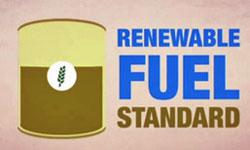Redfield Energy in South Dakota is celebrating a decade of ethanol production this week.
 The 55 million gallon per year plant opened on April 26, 2007 and since then has produced 545 million gallons of ethanol, 1.5 million tons of ethanol co-product distillers grains, purchased more than 194 million bushels of corn at an average price of $4.47/bu and generated $43.5 million in net income.
The 55 million gallon per year plant opened on April 26, 2007 and since then has produced 545 million gallons of ethanol, 1.5 million tons of ethanol co-product distillers grains, purchased more than 194 million bushels of corn at an average price of $4.47/bu and generated $43.5 million in net income.
“We are excited to have reached this milestone, said Redfield Chief Administrative Officer Dana Lewis, who serves on the board for the Renewable Fuels Association (RFA). “Our mission is to operate a profitable and innovative ethanol facility, be the preferred market for locally grown corn, and provide a quality feed product. We have worked hard to meet those goals and look forward to the next 10 years.”
RFA president and CEO Bob Dinneen offered his congratulations to Redfield Energy on the milestone. “Redfield Energy has been a leader within the U.S. ethanol industry and at RFA,” said Dinneen. “The company has been a local economic engine, providing jobs and investment opportunities to the area. This is a great achievement for Redfield Energy and we look forward to many more.”
Redfield Energy has also distributed more than $36 million to its members, many of whom are farmers, and this year anticipates increasing production to 63 million gallons and using almost 22 million bushels of corn.









